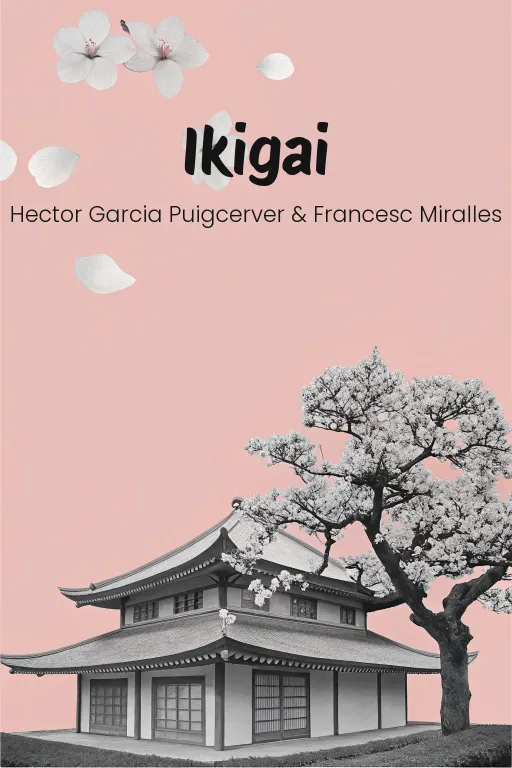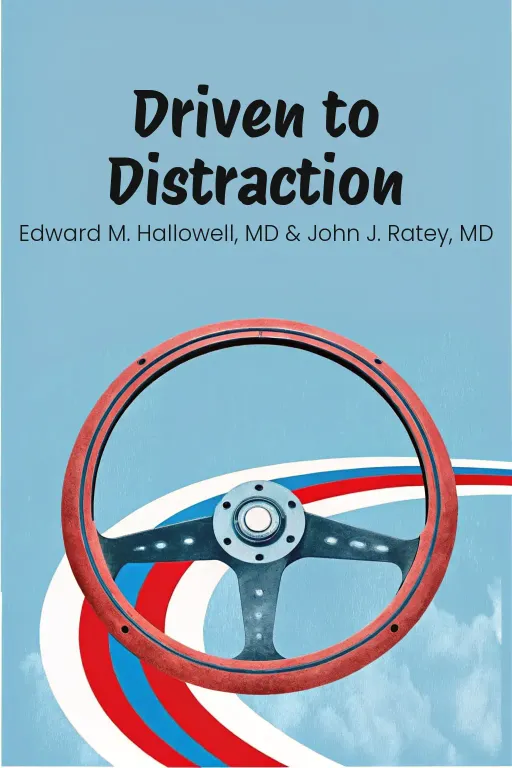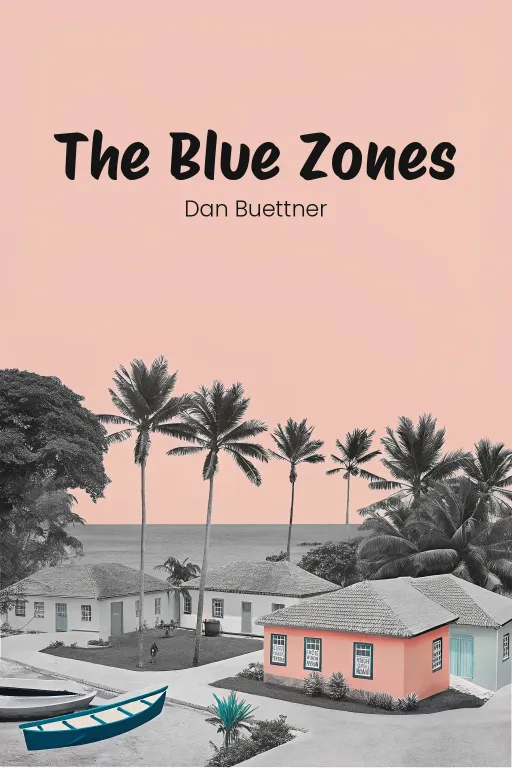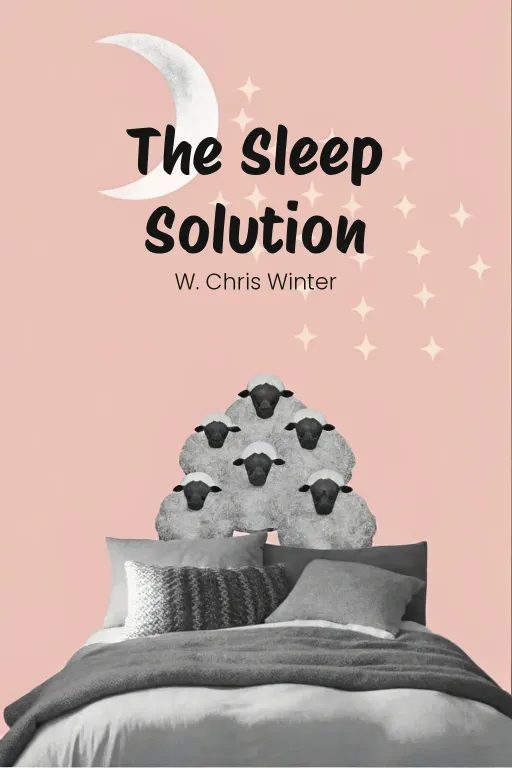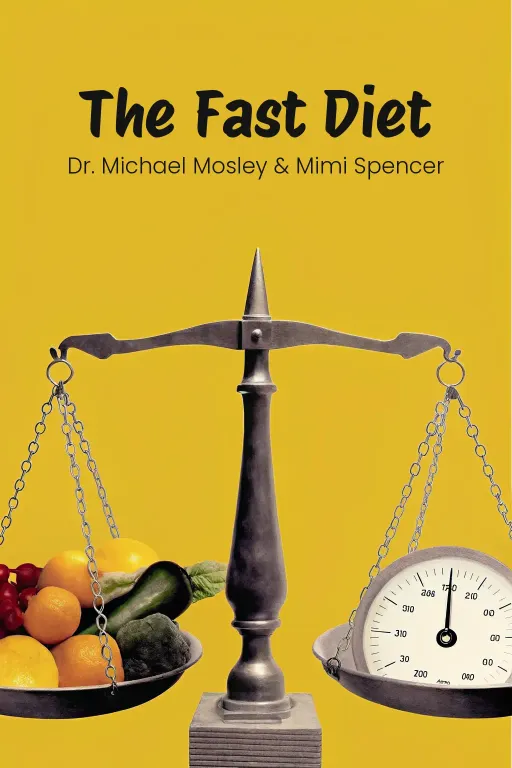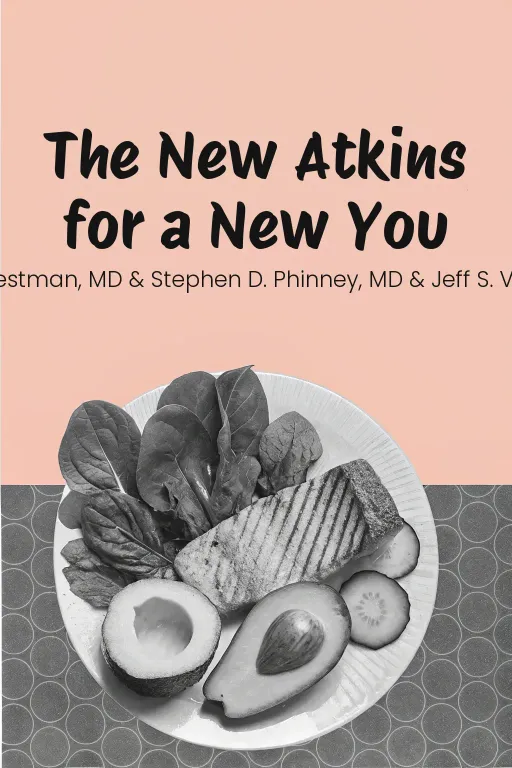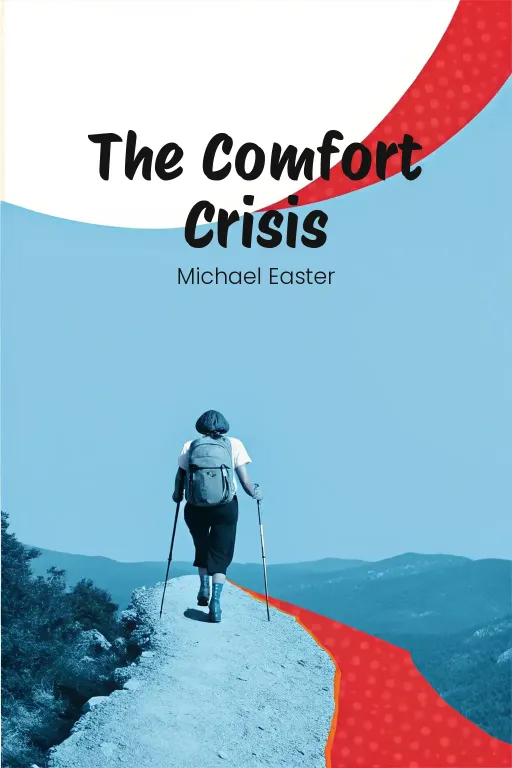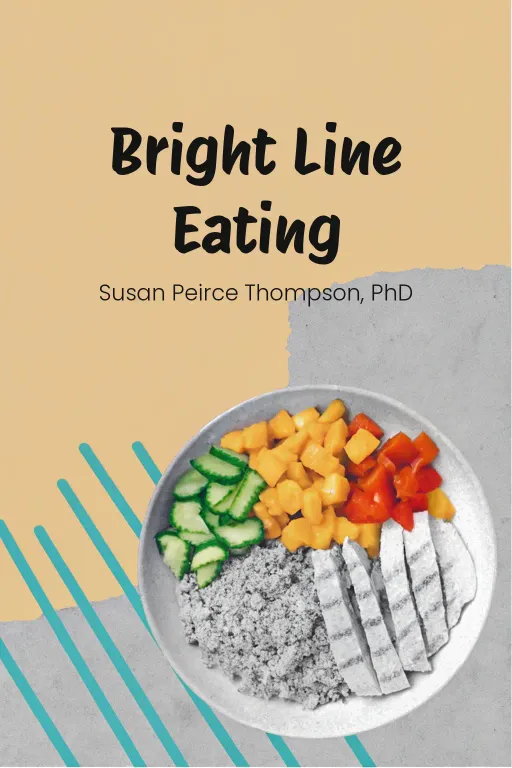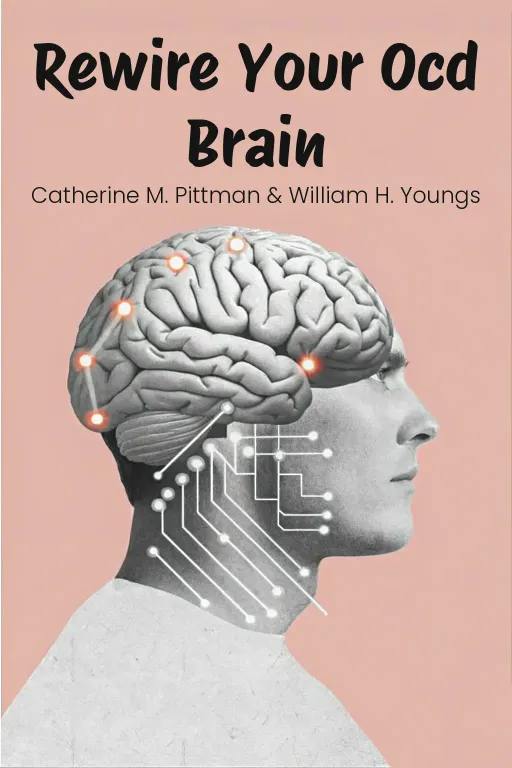
Sleep Reset: Hack Your Body Clock
Podcast by Beta You with Alex and Michelle
21 Essential Strategies to Sleep Your Way to A Better Body, Better Health, and Bigger Success
Sleep Reset: Hack Your Body Clock
Part 1
Alex: Hey everyone, welcome back to the show! Let's jump right in with a pretty important question: when was the last time you woke up actually feeling, truly “rested”? Like, not just "made it through the day" but genuinely refreshed and ready to take on anything? Michelle: Seriously? I think I’d have to go back to… well, never, probably. Does the five hours of sleep and three-shot espresso combo count? Because that's usually my "normal." Alex: You’re not alone, Michelle. A lot of us are running on fumes. That's why today we’re diving into the topic of quality sleep, something most of us seriously lack. We’re taking cues from this amazing book that explains exactly why sleep is the ultimate superpower for your body, mind, and soul. Michelle: Superpower? Okay, I’m listening. So, are we talking spandex and secret identities now? Should I be expecting some kind of sleep-induced transformation? Alex: Well, maybe not flight exactly, but think about it: sleep is what supercharges everything – your brainpower, your physical performance, and even how you handle your emotions. This book breaks down the science of sleep, showing how simple habits – things like getting morning sunlight, cutting caffeine at the right time, creating a sleep-optimized bedroom – can completely change your health. Michelle: Ah, I see! So it’s basically like...architecting your sleep. We start with the biological blueprint, then we build the walls with these healthy habits, and top it all off with a cozy, sleep-friendly environment. Makes sense. Alex: Precisely! And in today's show, we are going to explore it all. We’ll cover all the important details, from why sleep is crucial – think brain detox and weight management – to creating a bedtime routine that actually works for you. Michelle: Okay, you’ve convinced me. Rested brain, healthier body? Sign me up. Let's get to the bottom of this ‘sleep thing’...no caffeine needed… hopefully.
The Biological Need for Sleep
Part 2
Alex: Okay, Michelle, let's dive right in—why is sleep such a fundamental biological necessity? It's not just downtime; it's “really” prime time for your body and brain to perform essential maintenance. Michelle: “Life-saving maintenance?” You make it sound like I morph into an auto repair shop the moment my eyes close! Alex: Well, that's actually a pretty good metaphor. During sleep, your body is busy doing things like repairing tissues, producing growth hormones, and bolstering your immune defenses. Deep sleep, for example, is when your body releases growth hormones to help rebuild muscle and repair damage. It's like your own overnight restoration crew. Michelle: So, I’m basically a superhero with a healing factor… but only when I'm catching Zzz's. Got it. But why is this whole immune system thing so critical? Alex: Because sleep strengthens your immune function. While you sleep, your body churns out special proteins called cytokines. These are vital for fighting off infections and reducing inflammation. And if you're constantly sleep-deprived, your body can't produce enough of these, making you more susceptible to illness. Michelle: Right, so skimping on sleep isn’t just about feeling groggy—it's like flashing a "vacancy" sign to every cold and flu bug in town. Makes sense. What about the brain, then? Alex: Oh, the brain is where the “real” magic happens. Sleep is critical for cognitive function. During REM sleep, your brain reinforces the neural connections responsible for memory and learning. Then there's the glymphatic system—think of it as a nightly cleaning crew for your brain. Michelle: Glymphatic system? Sounds like the brain’s dedicated sanitation department. Alex: Not far off! This system 'cleans' your brain while you sleep, flushing out toxic waste, including beta-amyloid, a protein associated with Alzheimer's disease. Without sufficient sleep, these toxins can build up, potentially contributing to cognitive decline. Michelle: So, you're saying this is less about "beauty sleep" and more about "clarity sleep." Alex: Exactly. Sleep deprivation is like skipping garbage day in your brain. Things pile up, affecting everything—judgment, focus, problem-solving. Michelle: Speaking of effects, I read somewhere that being awake for 24 hours is like being legally drunk. Can that be true? Alex: Sadly, yes. Studies show that being awake for 24 hours creates cognitive deficits similar to having a blood alcohol concentration of 0.08%. A sleepless night affects reaction times, clouds judgment, and impacts reasoning—critical skills whether you're driving, working, or even making simple decisions. Michelle: Wow. So, sleep-deprived me is basically the guy who shouldn’t be behind the wheel or even picking what's for dinner. Alex: Right. And it doesn’t stop with just cognitive issues. Sleep deprivation throws your hunger hormones, leptin and ghrelin, completely out of whack. When you have less leptin—the hormone that signals fullness—and more ghrelin, you'll likely find yourself craving junk food constantly. Michelle: Wait, so my late-night pizza cravings aren’t “really” me—they’re just hormonal sabotage? Alex: Pretty much. And if you add disrupted insulin sensitivity to the mix, which can happen after just one night of poor sleep, these imbalances contribute to weight gain and maybe even increase the risk for type 2 diabetes over time. Michelle: Hold on—lack of sleep makes me dumber “and” expands my waistline? Why isn't this on every billboard? Alex: Great question. And there's more—a 2014 study showed that college students who skimped on sleep not only had lower GPAs but also struggled with impulsivity and stress. Lack of rest didn't just make studying harder; it fueled bad habits, like binge-eating and skipping exercise. Michelle: So these students weren’t only burning the midnight oil, they were torching their health and academic prospects along the way. Alex: Absolutely. That's why understanding sleep's role as a biological need is so vital. It's not a luxury or something you can "catch up on" all the time—it's foundational for good health. Michelle: Okay, Alex, I’m convinced. Sleep is more than a glorified nap. It’s restoration, security, and a brain detox all in one. So, what's next—how do we fix this?
Optimizing Daily Habits for Sleep
Part 3
Alex: Exactly, Michelle. And that's a perfect segue. Now that we've kind of laid the groundwork for why sleep is so crucial, let’s get into the practical stuff, shall we? How optimizing our daily habits can really transform our sleep quality. We're not talking about huge lifestyle overhauls here, but just these small, intentional tweaks that work “with” our biology. Michelle: Okay, sounds good. So, what's step one in this grand plan, this… this master manipulation to trick our bodies into better sleep? Alex: Step one: Get in sync with your natural circadian rhythms. And that starts with exposure to morning sunlight. Think of bright light in the morning as a reset button for your body's internal clock. It actually suppresses melatonin, the hormone that makes you feel sleepy, right? And boosts cortisol, which helps wake you up and energize you for the day. Michelle: So basically, sunlight turns me, like, from a "sleepy zombie" into a "semi-functional human being?" But seriously, what if my mornings look less like a sunrise hike and more like a mad dash to the coffee machine in a pitch-black kitchen? That’s more realistic, right? Alex: I totally get it. Even small shifts can make a difference, though. Research actually supports that just 20 to 30 minutes of outdoor light exposure, say, between 6:00 and 8:30 AM, is enough to stabilize your sleep-wake cycle. And if getting outside isn’t an option, especially during those darker months, right? Light therapy boxes are fantastic alternatives. They're designed to mimic that early morning sunlight, giving your brain the cues it needs. Michelle: Alright, so either I bask in the morning glow, or I invest in some high-tech gadget. But seriously, how much of a difference can this “actually” make? Alex: Oh, a big difference! Take office workers, for example. Studies show that employees with greater access to natural light not only sleep longer – sometimes up to 46 “extra” minutes a night – but also report higher daytime energy and better morale. And yeah, the key, as always, is consistency. Making that morning light exposure a daily ritual sets the tone for better sleep patterns. Michelle: Okay, I… I see how this “could” work. But speaking of disrupting established unhealthy patterns, let's talk screens. I mean, everyone checks their phone before bed, right? We all need to know about that last-minute email or see who's liking what on Instagram. I’m joking, but why is that “actually” such a sleep killer? Alex: Ah, blue light. The villain of modern sleep hygiene. Devices like phones, TVs, and tablets emit a specific wavelength of light that mimics daylight, you know? So this tricks your brain into thinking it's still daytime. Thus, suppressing melatonin production and delaying your wind-down process. Michelle: So all my doom-scrolling is basically convincing my brain that nighttime doesn't exist? Great. You're painting a bleak picture here, Alex. Alex: Exactly! And honestly, it's not just anecdotal either. There's a study by Dr. Mariana Figueiro showing that just two hours of screen time in the evening can halt melatonin production, making it harder to fall asleep and stay asleep. Michelle: Two hours? So my nightly binge-watching is sabotaging me more than I thought. Ouch. What can we “do” about it, short of tossing the TV out the window? Alex: It’s all about creating boundaries. I mean, one simple solution is implementing a screen curfew, right? Like, turn off your devices at least 90 minutes before bed to give your body the time it needs to naturally prepare for sleep. If that's not possible, there are tools like blue light-blocking glasses or devices that filter blue light – like the Night Shift feature on most phones – to help mitigate some of the impact. But the best approach is a combination of less screen time and developing tech-free evening rituals. Michelle: Rituals? What are we talking about here, bedtime lullabies? Are you going to sing me a song? Alex: Well, more like calming, non-digital activities, you know? You could journal, read a book, meditate, or even stretch. These substitute activities help relax your mind, easing that transition to sleep. And when people stick to these habits, they often find not just better sleep but also indirect benefits, like improved focus, enhanced productivity, and reduced stress levels. Michelle: Hmm, okay, so, no screens. Fine, mom. But let's move on to the elephant in the room -- coffee. Surely you're not going to tell me I have to give up my cup of survival juice. I need that. Alex: Not at all! It’s really just about timing. Caffeine blocks adenosine, that neurotransmitter responsible for making you sleepy. Now, the problem is, caffeine's effects can linger for hours and hours. And for some people, even a late-afternoon cup can really interfere with their ability to unwind at night. Michelle: You mean I can’t just use espresso as a stand-in for willpower, for motivation? Tragic. This is truly tragic news, Alex. Alex: Well, the key is a caffeine curfew. For most people, cutting off caffeine intake by 2 PM works well, but if you’re particularly sensitive, you might need to stop even earlier, around noon. On top of that, cycling caffeine can help. This means incorporating caffeine-free days into your week to avoid dependency while keeping it effective on the days you really need it. Michelle: So no more 5 PM lattes? Fine. I guess. But I “do” like that idea of cycling. It’s like tricking my caffeine addiction into working smarter, and you know I like that. And let me guess – switching to decaf, that's got to be another option, right? Alex: Exactly! In the afternoons, swap coffee for herbal teas or even decaf if you still crave the ritual, you know? Not only will this prevent caffeine-induced sleep disruption, but it also avoids the dehydration that can come with that late-day caffeine, helping you stay more balanced overall. Michelle: Alright. Light in the morning, no phones at night, and caffeine only during reasonable hours. It sounds… almost too simple. But how do these habits really work “together,” though? Alex: Together, they really synchronize your body’s natural rhythms and hormone levels. That morning sunlight ensures a strong start to your day; reducing screen exposure in the evening preps your brain for rest; and managing caffeine prevents interference with the wind-down process. When you combine these strategies consistently, they create a “positive” feedback loop. Sleep quality improves, which, in turn, boosts your energy and decision-making. This makes it just easier to stick to these habits. Michelle: So it’s not just a series of separate, individual fixes. It's like putting puzzle pieces together for a better “system.” I think I can work with that. I like systems.
Creating the Ideal Sleep Environment
Part 4
Alex: So, now that we’ve talked about how important sleep is biologically, let’s dive into what we can actually “do” every day to sleep better. This is all about creating the perfect sleep environment, Michelle, because honestly, where you sleep is just as important as when and how you sleep. Michelle: Okay, so we're talking about turning my bedroom into some kind of sleep optimization chamber, right? Do I need to hire an interior designer for this? Alex: Not exactly! Think of it more like a checklist. It's all about making your space match what your body naturally needs to rest. Things like cooler temperatures, complete darkness, comfort, and keeping distractions to a minimum. Let's start with temperature. Did you know your body actually cools down at night to help start the whole sleep process? Michelle: My body turns into a personal AC unit? Huh. Okay, but how sensitive are we talking here? If it's off by a degree or two, am I doomed to insomnia? Alex: Not doomed, but research shows an optimal range of around 60 to 67°F really does make it easier to fall asleep and stay asleep. If it's hotter or colder than that, your body has to work extra hard to regulate itself, and that can mess with your sleep. Michelle: Sure. But what about those of us who can't agree on a thermostat setting with our significant other? One of us is always freezing, the other is sweating. Is there a compromise to be had? Alex: Absolutely. That's where layering and personal adjustments come in. Lightweight, breathable bedding can help create a comfortable microclimate around you. And for couples with different preferences, dual-zone mattress pads or separate blankets can be a lifesaver. Michelle: Got it. So, no more thermostat wars, just invest in the right gear! What’s next on the list? Darkness? Alex: Exactly. Darkness is another must for good sleep. Melatonin production – that hormone that helps regulate your sleep cycle – depends on the absence of light. Michelle: Right, but let's be real. Even if I kill all the lights and close the curtains, there's still light pollution bleeding in from the streetlamp outside my window, or the little glow from my phone charger. How much does that actually matter? Alex: More than you might think! Brown University research actually found that even skin cells can detect light exposure. So, even if you're wearing a sleep mask, ambient light on your skin can still disrupt melatonin production. Michelle: Wait, my skin has tiny eyeballs? That's… a little unsettling. Alex: Think of it more as light-sensitive receptors. That’s why blackout curtains are such a game-changer. They block all that stray light, especially if you're in a city. And if you're traveling or can't fully block light, an eye mask – and covering any LED lights – can help maximize the darkness effect. Michelle: Right, blackout curtains, check! What other simple things can we do? I mean, everyone's always telling me to get the perfect mattress, but honestly, it feels like a scam designed to sell overpriced foam. Alex: Comfort really does extend beyond just the mattress. While the right mattress and pillow are crucial for spinal alignment, what you sleep in - or don't sleep in - also affects your sleep quality. Tight, synthetic, or non-breathable materials can cause overheating or discomfort. Michelle: Okay, but do we really need a scientific study to tell us to wear loose pajamas? Isn't that just common sense? Alex: Well, science backs it up! A Dutch study found that even slightly cooling the skin by wearing the right clothing – or wearing nothing at all – improved deep sleep and reduced night awakenings. So, breathable fabrics like cotton or bamboo can be the difference between waking up refreshed or waking up grumpy. Michelle: So basically, it's not just what's on my bed, it's what's on me... or not. Got it. What about noise? Are we talking about building soundproof bunkers next? Alex: Noise definitely plays a role, but it's less about total silence and more about creating a consistent auditory environment. White noise machines, fans, or calming playlists can help mask disruptive sounds, especially if you live in a noisy area. The goal is to reduce sudden sound fluctuations that can interrupt sleep cycles. Michelle: So, I don't have to move to a remote cabin in the woods; I can just drown out the city noises with some white noise? Alex: Exactly. But beyond sound, there’s one more modern-day enemy we have to address: electronic distractions. This is huge, Michelle, because our devices are some of the worst offenders when it comes to sabotaging sleep. Michelle: Ah yes, my midnight scroll-a-thons. Let me guess… blue light? Alex: That’s part of it. The blue light from screens mimics daylight and suppresses melatonin, making it harder to wind down. But there's also the mental stimulation to consider. Even if the light isn't the issue, checking emails, news, or social media before bed can keep your mind racing when it should be relaxing. Michelle: Great, so now my phone is both entertaining me and betraying me. Do we just chuck our devices into another room? Alex: That's definitely one option. Ideally, the bedroom should be a tech-free zone. But if parting with your phone feels impossible, set a screen curfew – about 90 minutes before you plan to sleep. And swap your device for calming activities like reading, journaling, or meditating. And yes, turn on night mode or use blue light-blocking glasses as an extra layer of protection. Michelle: Let me recap here: we've got temperature, darkness, comfort, noise, and now banning electronics. My bedroom is sounding less like a Netflix lounge and more like a zen temple. Alex: Exactly! The idea is a sleep sanctuary that matches your body's needs, free from distractions or disruptions. When each element works together, the result isn't just better sleep, but a healthier, more energized version of yourself by morning. Michelle: Alright, Alex, I’m sold. My sleep environment is about to undergo a total overhaul. You know, ironically, fixing these things doesn’t seem all that complicated. Why do we make it so hard on ourselves? Alex: Because we simply don't prioritize it the same way we prioritize other things. But by starting with even one or two small changes – like investing in blackout curtains or setting a reasonable tech boundary – you can see measurable improvements in sleep quality almost immediately. And that positive feedback motivates even bigger changes over time. Michelle: That’s a good point, starting is better than not doing, Alright, Alex, I’m onboard. My sleep environment is about to undergo a total overhaul. Just promise me I won’t become that friend who won’t stop talking about blackout curtains. Alex: I promise! Though, once you start sleeping better, you might not be able to help yourself. Let’s move on and discuss how grounding and air quality can refine this sanctuary even further.
Conclusion
Part 5
Alex: So, to sum it all up, we’ve really dug into how crucial sleep is from a biological perspective. We're talking brain detox, a boosted immune system, hormone balance, and sharper thinking. Sleep isn't just downtime; it’s when your body repairs itself, rejuvenates, and gears up for you to be at your absolute best. Michelle: Right, and the really good news is, getting better sleep comes down to simple, daily choices. Things like getting some sun in the morning, setting a screen-time limit, ditching the afternoon caffeine, and making your bedroom a total sleep sanctuary. It's not about being perfect, but about making progress, step by step. Alex: Exactly! Think of these things we've talked about as building blocks. Each little habit you create – whether it's blocking out light or managing noise – starts a positive chain reaction. Better sleep leads to better days, and better days, in turn, make you even want to commit to getting good sleep. It's a virtuous cycle! Michelle: Absolutely. So, here’s your challenge: Pick just one of these tips, whatever calls to you the most. Maybe it’s switching to better lightbulbs, stopping that afternoon coffee, or finally investing in blackout curtains. Try it out and see how it affects you. Experiment, adapt it to your life, and just start somewhere. Alex: Because the thing is, when you make sleep a priority, you're not just tacking on more hours of rest. You're building a rock-solid foundation for a healthier, sharper, more energetic version of yourself. Sleep smarter, live better. Michelle: There you have it. It's time to wish you all the sweetest of dreams. Until next time, remember: your best self “really” does begin with a good night’s sleep.

